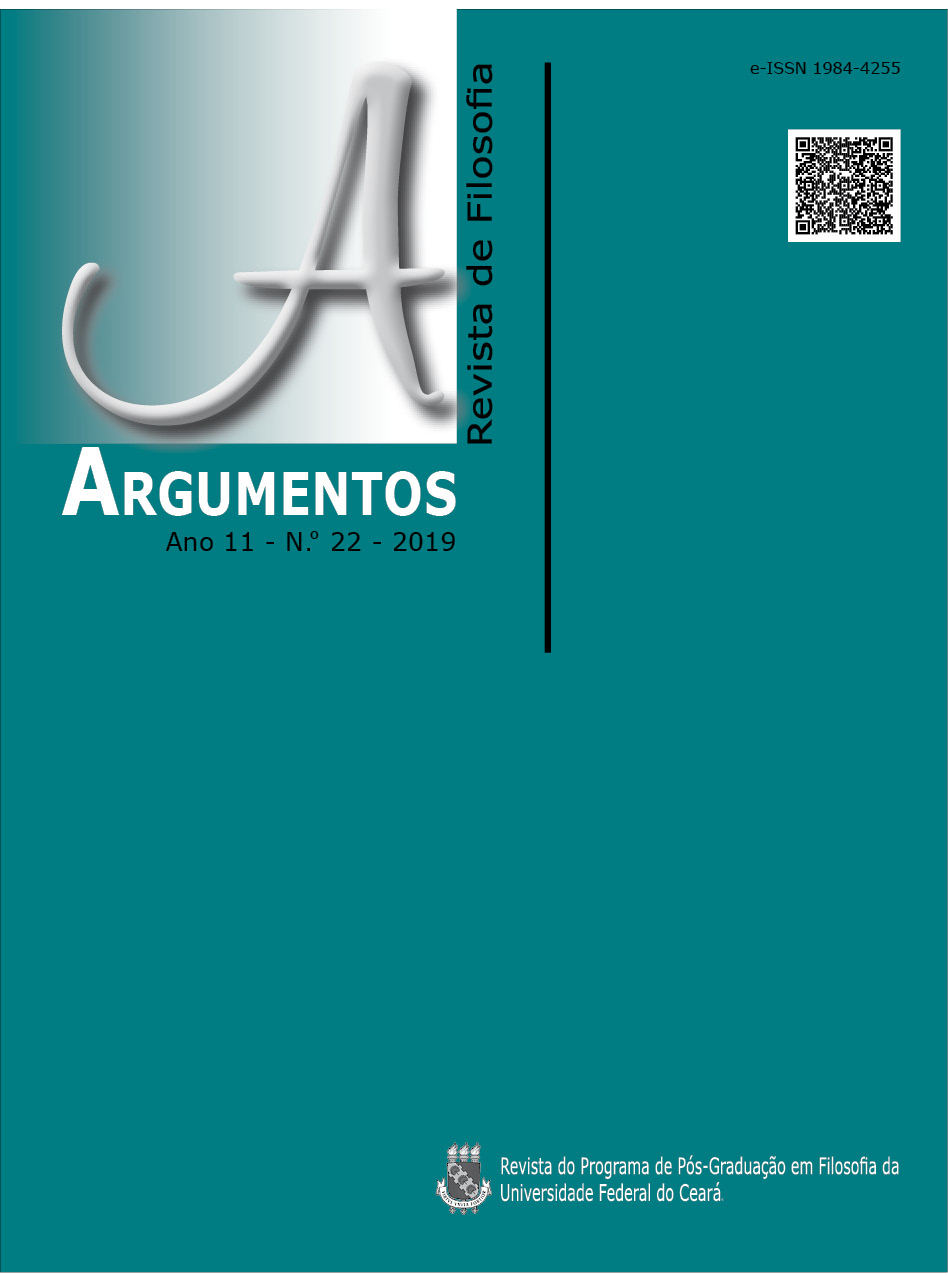Nagel's reduction theory revisited
DOI:
https://doi.org/10.36517/Argumentos.22.4Keywords:
Intertheoretical reduction. Nagel. Scientific explanation.Abstract
The aim of this paper is to develop further a model of reduction derived from Nagel’s model and from the deductive-nomological model of explanation. We propose this development by examining its consistency with the history of physics, in particular, with Nagel´s further account of the history of physics. In the first part, we introduce the issue of intertheoretical reduction. In the second, we examine the partial consistency of the derived D-N model of reduction with Nagel’s further considerations on reduction. As a conclusion, we argue that, in agreement with Nagel´s theory, the full consistency with history of science is a criterion needed for any purported theory of reduction and that the autonomy of the reducing science is to be preserved.
Downloads
References
BROOK, D.H.M. (1994) ‘How to Perform a Reduction’. Philosophy and Phenomenological Research V.LIV N.4, December, 803-814.
EINSTEIN, A (1997) ‘Autobiographisches’. In: Schilpp, P.A. Albert Einstein: Philosopher-Scientist. Open Court, La Salle, Illinois, pp.1-96.
FEIGL, H. (1962) ‘Unity of science and unitary science’. In: Feigl, H. et. al. (1962). Minnesota Studies in Philosophy of Science, Minneapolis: Minnesota University Press.
HEMPEL, C.G. (1971) Filosofia da ciência natural. São Paulo: Ed. Edusp.
KIM,J. (1998) ‘Reduction and Reductionism: A New Look’. In: Kim, J. (1998) Mind in a Physical World: An Essay on the Mind-Body Problem and Mental Causation. The MIT press, Cambridge, Massachusetts.
NAGEL,T. (1961) The Structure of Science: Problems in the Logic of Scientific Explanation. Routledge & Kegan Paul, New York.
_________ (1991) ‘La reducción de teorias’ In: La Estrutura de la Ciencia: Problemas de la Logica de la Investigación Científica. Barcelona: Ed. Paidós Básica.
---------------. (1998) ‘Issues in the Logic of Reductive Explanations’. In: Philosophy of Science: Central Issues. Curd, M. & Cover, J.A., Norton & Company, New York, pp.452-520.
POLLACK, H. (1968). Applied Physics. New Delhi.
PUTNAM, H. (1980) ‘Brains and Behaviour’. In: Morick, H. (ed). Challeges to Empiricism. London, Methuen & Co.
---------------. (1989) Representation and Reality. Cambridge: MIT Press.
--------------. (1995) Words and Life. Ed. James Conant. Cambridge, Mass. Harvard University Press.
---------------. (1997) ‘Functionalism: Science or Science Fiction ?’ In: Martel, D.M. Erneling, C.E. The Future of Cognitive Revolution. Oxford, Oxford University Press, pp.32-44.
Downloads
Published
Versions
- 2025-03-28 (2)
- 2019-11-18 (1)
How to Cite
Issue
Section
License
Copyright (c) 2019 Argumentos - Revista de Filosofia

This work is licensed under a Creative Commons Attribution 4.0 International License.
Argumentos magazine is licensed under an International Creative Commons Attribution License.
The Magazine uses CC BY inclusion
1) The authors retain the copyright granted to the magazine or the right to initial publication, with the work regularly licensed under the Creative Commons Attribution, which allows the sharing of the work with acknowledgment of authorship and initial publication in this magazine.
2) The authors are authorized to contract additional applicable contracts, for non-exclusive distribution of the version of the work published in this journal (for example, publication in the institutional repository or as a chapter of the book), recognition of authorship and initial publication in this journal.
3) Authors are authorized and encourage to publish and distribute their work online (for example, in institutional repositories or on their personal pages) at any time before or during the editorial process, as they can generate productive changes, as well as increase the impact and reference of published work.




.jpg)










._._3.png)
1.jpg)
._._._.png)
